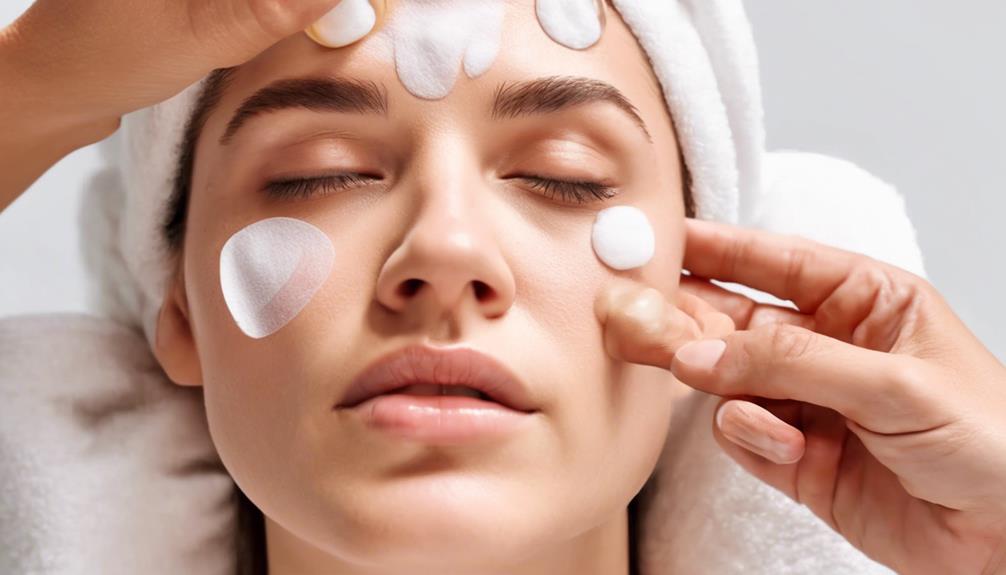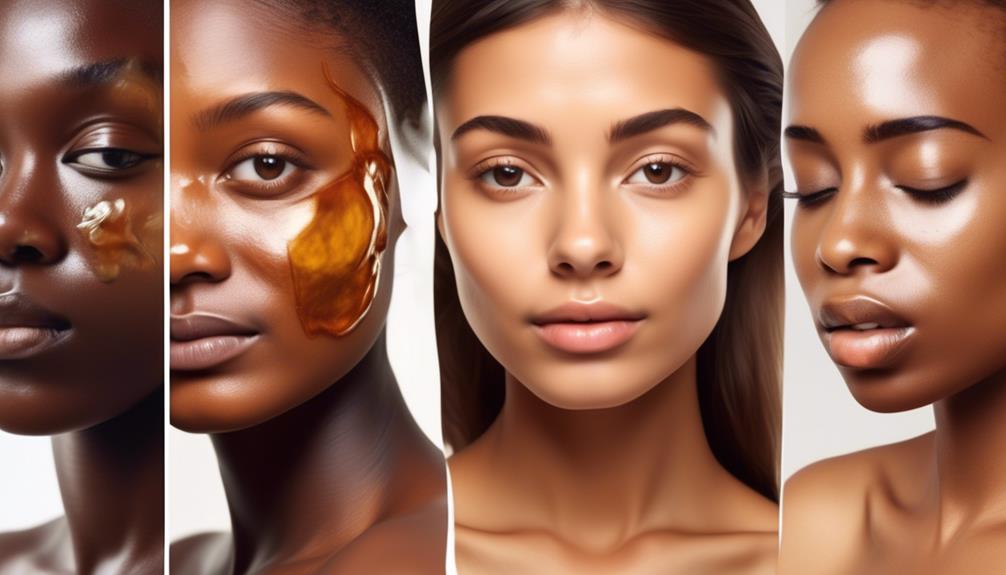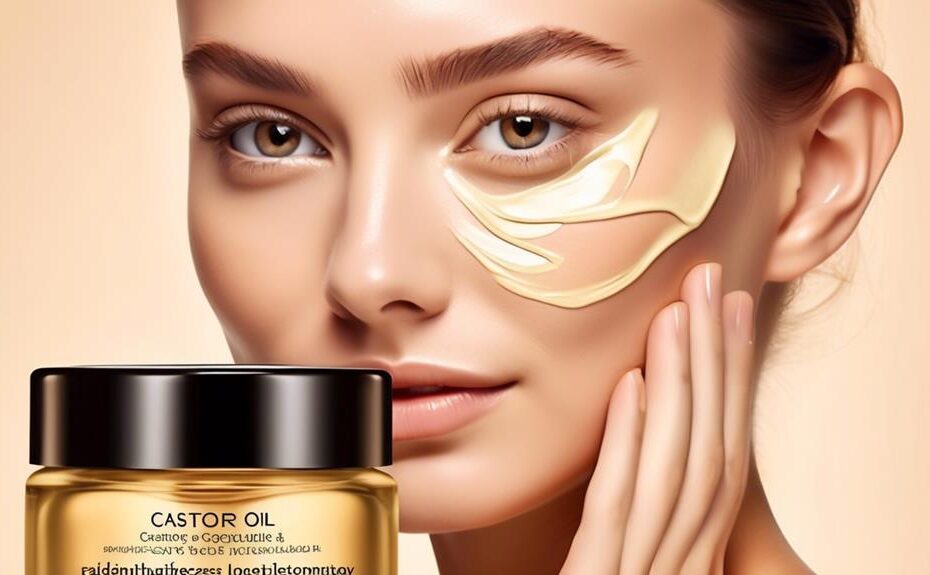Should You Use Castor Oil on Your Face: Exploring its Potential Benefits and DrawbacksCastor oil has gained popularity in recent years as a potential skincare remedy, but should you use it on your face? While some claim that castor oil can help moisturize the skin, reduce inflammation, and even promote hair growth, others warn about its potential drawbacks.
In this article, we will delve into the world of castor oil and its effects on the face, exploring its potential benefits and drawbacks. Additionally, we will discuss how to properly incorporate it into your skincare routine, explore alternative options, and provide final considerations to help you make an informed decision about whether castor oil is right for your facial skincare needs.
So, before you make any decisions about your skincare routine, let’s explore the use of castor oil on your face.
Key Takeaways
- Castor oil moisturizes the skin and reduces dryness and flakiness.
- It may improve the appearance of scars, stretch marks, and dark spots.
- Use caution as castor oil may cause skin irritation and acne breakouts.
- Perform a patch test and consult a dermatologist before using castor oil on the face.
Potential Benefits of Using Castor Oil on Your Face

Using castor oil on your face has been associated with a variety of potential benefits. Many individuals have turned to castor oil as a natural remedy for various skin concerns.
One of the most commonly touted benefits is its effectiveness in moisturizing the skin. Castor oil is rich in fatty acids, which can help to nourish and hydrate the skin, leaving it soft and supple.
Moreover, castor oil has been claimed to possess anti-inflammatory properties, making it potentially beneficial for individuals with inflammatory skin conditions such as acne or rosacea. The oil may help to calm redness and reduce swelling, promoting a clearer complexion.
Furthermore, some people believe that castor oil can help to improve the appearance of scars and stretch marks. It is thought to stimulate collagen production, which aids in the regeneration of skin cells and may contribute to the fading of these imperfections over time.
While castor oil may offer these potential benefits, it is important to note that individual results can vary, and scientific evidence supporting these claims is limited. Additionally, it is essential to consider the potential side effects of using castor oil on the face. Some individuals may experience skin irritation or allergic reactions. It is advisable to perform a patch test before applying castor oil to the entire face and discontinue use if any adverse reactions occur.
Drawbacks of Using Castor Oil on Your Face
While castor oil has been associated with potential benefits for the skin, it is important to also consider the drawbacks of using it on your face. Although generally considered safe for topical use, there are potential side effects and risks that individuals need to be aware of.
Potential side effects of using castor oil on your face include:
- Skin irritation: Some individuals may experience redness, itching, or a burning sensation when applying castor oil to their face. This can be particularly problematic for those with sensitive skin.
- Acne breakouts: Castor oil is a thick and heavy oil that can clog pores, leading to the development of acne. This can be especially concerning for individuals who already have oily or acne-prone skin.
- Allergic reactions: While rare, some individuals may be allergic to castor oil. Allergic reactions can manifest as rashes, hives, or swelling of the face. If you experience any of these symptoms, it is important to discontinue use and seek medical attention.
It is essential to conduct a patch test before applying castor oil to your face to check for any adverse reactions. If you have any concerns or pre-existing skin conditions, it is advisable to consult with a dermatologist before incorporating castor oil into your skincare routine.
How to Properly Use Castor Oil on Your Face

To ensure proper application and maximize the potential benefits, it is important to follow a few guidelines when using castor oil on your face.
First, it is essential to choose the right type of castor oil for skincare. There are different variations available, such as organic cold-pressed castor oil and Jamaican black castor oil. While both types have similar benefits, Jamaican black castor oil is believed to have a higher concentration of nutrients and is often preferred for hair growth.
Once you have selected the appropriate castor oil, follow these steps for proper application:
- Cleanse your face: Before applying castor oil, make sure your face is clean and free from any dirt or makeup. This will help the oil penetrate the skin more effectively.
- Patch test: It is always recommended to perform a patch test before applying castor oil to your entire face. Apply a small amount of oil to a small area of your skin and wait for 24 hours to check for any adverse reactions.
- Apply the oil: Take a few drops of castor oil and gently massage it onto your face using circular motions. Pay extra attention to areas of concern, such as dry patches or fine lines.
Alternatives to Castor Oil for Skincare
As an alternative to using castor oil for skincare, there are various other options available that offer similar benefits and can be incorporated into your skincare routine. Here are three alternatives to consider:
- Argan Oil: Known for its moisturizing properties, argan oil is rich in essential fatty acids and vitamin E. It helps hydrate the skin, reduce inflammation, and improve the overall appearance of the skin. Its lightweight texture makes it suitable for all skin types.
- Jojoba Oil: Similar to the natural oils produced by our skin, jojoba oil is easily absorbed and helps regulate oil production. It can help balance the skin’s moisture levels, soothe dryness, and promote a healthy complexion. Jojoba oil is also non-comedogenic, making it suitable for acne-prone skin.
- Rosehip Seed Oil: Packed with antioxidants and essential fatty acids, rosehip seed oil is known for its rejuvenating and brightening properties. It can help improve the appearance of scars, fine lines, and hyperpigmentation. Rosehip seed oil is also lightweight and easily absorbed, making it suitable for all skin types.
In addition to natural oils, incorporating DIY face masks into your skincare routine can also promote glowing skin. Ingredients like honey, yogurt, turmeric, and oats can provide nourishment, exfoliation, and brightening effects.
It’s important to note that individual skin types may react differently to these alternatives, so it’s recommended to patch test and consult with a dermatologist if you have any concerns.
Final Considerations Before Using Castor Oil on Your Face

Before incorporating castor oil into your skincare routine, it is important to consider certain factors to ensure its suitability and effectiveness for your skin. While castor oil has been praised for its potential benefits, it is crucial to be aware of potential skin reactions and long-term effects.
To help you make an informed decision, let’s examine the possible skin reactions and long-term effects of using castor oil on your face.
| Skin Reactions | Long-Term Effects |
|---|---|
| Allergic reactions such as redness, itching, or swelling | Excessive dryness or oiliness |
| Acne breakouts or clogged pores | Thinning of the skin |
| Irritation or sensitivity | Disruption of the skin’s natural barrier function |
| Rash or dermatitis | Uneven skin tone or pigmentation |
| Increased sensitivity to sunlight | Premature aging or wrinkles |
It is important to note that individual experiences may vary, and it is recommended to perform a patch test before applying castor oil to your entire face. Additionally, consulting with a dermatologist is advisable, especially if you have pre-existing skin conditions or sensitivities. They can provide personalized guidance and recommendations based on your specific needs and concerns.
Ultimately, it is crucial to prioritize your skin’s health and well-being when considering the use of castor oil on your face.
Frequently Asked Questions
Can Castor Oil Be Used on Other Parts of the Body Besides the Face?
Castor oil can be used on other parts of the body besides the face for various alternative uses. It may have potential benefits such as moisturizing dry skin, promoting hair growth, and relieving muscle soreness. However, scientific evidence supporting these claims is limited.
Is Castor Oil Safe to Use on Sensitive Skin?
Castor oil has numerous benefits for the skin, but when it comes to sensitive skin, caution is advised. Alternative oils, such as argan or jojoba, may be better suited for those with sensitive skin due to their gentle and nourishing properties.
Can Castor Oil Help Improve the Appearance of Acne Scars?
Castor oil has been touted for its potential to improve the appearance of acne scars. While there is limited scientific evidence supporting this claim, it is believed that the oil’s moisturizing and anti-inflammatory properties may contribute to its potential benefits in reducing the appearance of scars.
How Often Should Castor Oil Be Applied to the Face?
The frequency of applying castor oil to the face depends on individual needs and preferences. Results may vary and can take several weeks to notice. It is not necessary to mix castor oil with other oils for facial application.
Are There Any Potential Side Effects of Using Castor Oil on the Face?
Potential risks and allergies should be considered before using castor oil on the face. While it is generally safe, some individuals may experience skin irritation or allergic reactions. It is advisable to perform a patch test and consult a dermatologist if any adverse reactions occur.
Conclusion:Should You Use Castor Oil on Your Face
In conclusion, using castor oil on your face may have potential benefits such as moisturizing and reducing acne. However, there are drawbacks such as potential skin irritation and the risk of clogged pores. It is important to properly use castor oil by diluting it and conducting a patch test first.
Additionally, there are alternative skincare options available. Before using castor oil on your face, it is crucial to consider individual skin type and consult with a dermatologist.
Interestingly, a study found that castor oil has antimicrobial properties, which may contribute to its potential effectiveness in treating acne.
